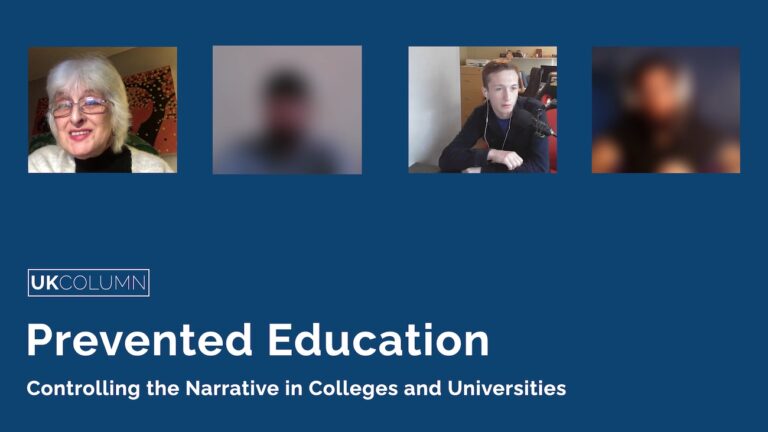The recent British government has decided to make fighting “extremism” a fundamental policy goal and has enacted legislation to this effect in Parliament. Anti-terrorism and security lawThe government'sBlocking Obligations' was first published in 2011, Ostensibly anti-terrorismstrategy.
In the UK, public institutions such as universities and schools have a statutory duty to prevent young people from becoming involved in terrorism, hence the name of the scheme. In practice, civil servants, teachers, lecturers and health professionals are required to monitor any actions they take to prevent young people becoming involved in terrorism. They find In suspicious or extreme cases, please report them to Prevent for further investigation.
Have our educational institutions been corrupted and infiltrated by draconian new policies of policing freedom of speech and thought? The Prevent Duty has risked doing more harm than good by silencing discussion of any subject deemed controversial or conspiratorial by those in publicly funded positions. It has created distrust among students and teachers and instilled a sense of fear that looms large on most UK university campuses.
Accompanying Debi Evans is Saeed, a young man in his late teens who was studying his A-levels at university but, like Murray Allan, his life and education changed in an instant when he expressed his belief in transgender ideology in class. Saeed (whose name has been changed to protect his identity) is accompanied by his friends Dylan and Students against tyranny (soil).
Saeed was all excited, expecting straight A's. But then his life changed. After speaking out about the COVID-19 “vaccination” and how his Christian faith is at odds with modern orthodoxy on the LGBT debate, Saeed was suspended from college and told that further action would be taken if his views “did not change.” was He was arrested and, without any warning or notice, told he would need to be questioned by Prevent officials to establish whether he was a threat to national security.
When Saed suggested to his university that he would refrain from expressing his opinions and beliefs at the university and would only discuss Christian values with friends and family, the response surprised him. Make a permanent change Whether he would be allowed to return to study at university. As he was unable and unwilling to consent to this, Saeed was permanently excluded because he did not “meaningfully” participate in preventative “deradicalization” programs or sign the university's “conduct contract” promising to change his beliefs and ideas.
Despite experiencing enormous psychological trauma and at one point feeling suicidal, Saed sought support from friends and James Harvey of Students Against Tyranny. To his surprise, he learned from James that Saed was not alone. There are many more students out there who are currently feeling isolated, lonely and too scared to speak up. Many have abandoned higher education and are looking for alternative work. After months of feeling scared, isolated and anxious, Saed is now privately studying for his A-levels, but it has come at a huge cost – around £12,000 so far.
The strict crackdown on healthy debate and discussion in further and higher education institutions is likely to continue. Freedom of speech, freedom of thought and the right to express our ideas, opinions and views have been lost unless more of us stand up and speak out. James Harvey urges viewers not to feel afraid, alone or anxious. Joining Students Against Tyranny is free and everyone is welcome. If you are not eligible to join, donations are always welcome and will be put to very good use, even from as little as £3 a month. How corrupt are our educational institutions? What impact are they having? Confucius Institute How will it impact our academic institutions or our International Security?
Freedom of speech, democracy, the right to think, dream and pray must be protected before they are lost forever. What future can our young people expect? Which is more important to you: a duty of care to students or a duty of care to the current government rhetoric? Debi Evans thanks all those involved in the production of this interview, especially Saed for having the courage to speak out against all odds. Mike Robinson and Stephanie Sinclair from the UK column made this interview possible.
For more on the Prevent strategy, see Debi Evans and Brian Gerrish’s recent in-depth discussion, “Prevention: Fighting Domestic Terrorism in the UK.” There's no smoke without fire series.
Dr Arif Ahmed of Gonville and Caius College, Cambridge said: Director of Free Speech for Student Affairs.


